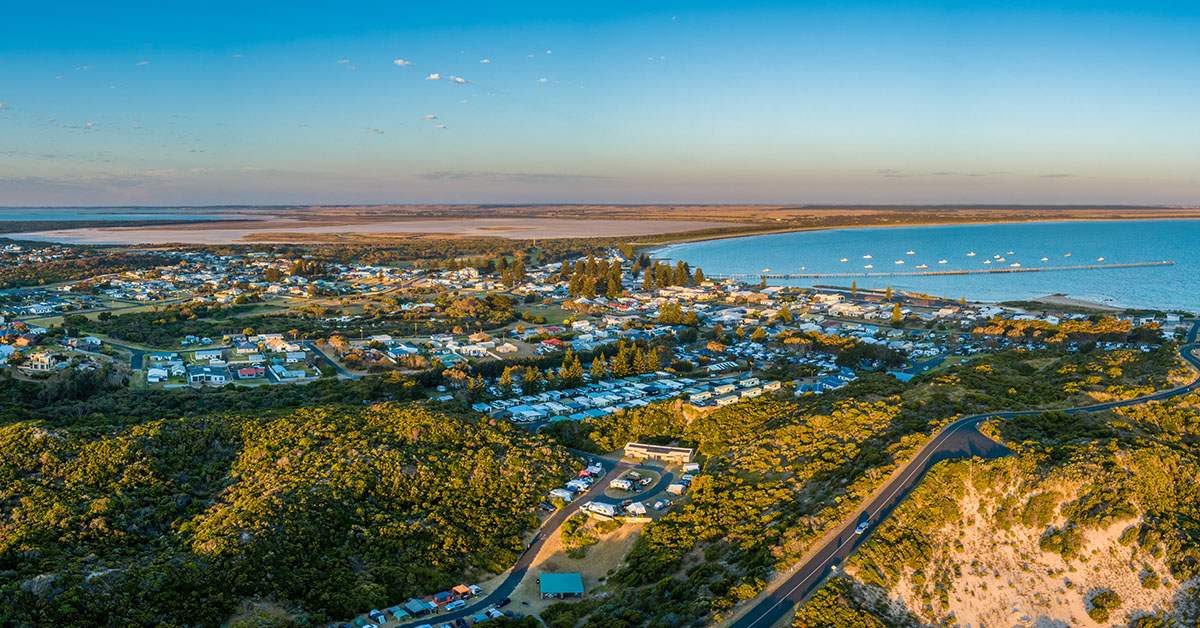Guide to Property Investing in South Australia

While you have a wide range of choices when it comes to investing and growing your wealth, property often crops up as a stable option. With steady growth over the long term and its relative permanence and tangibility compared to other assets, it's no wonder people have been flocking to the real estate market.
But what do you need to know about investing in property in South Australia?
Different types of property investment in South Australia
There are two ways to go about buying an investment property in South Australia - let's take a look at them.
Positive cashflow property
A positive cashflow property refers to when the rental income made from the home exceeds the costs of running it, including your outstanding home loan and maintenance expenses. The property will be running at a profit, with an excellent rental yield.
Because values are constantly rising, however, rental yields can often fall in the long-term. This can make it a little more difficult to maintain positive cashflow, year-on-year.
Negatively geared property
A negatively geared property is the opposite of a positive cashflow one - the property operates at a loss, with the interest on the home loan and other expenses exceeding the rental income. Why would anyone choose this method? Well, negatively geared property can be eligible for tax deductions. These breaks allow investors to manage their property at a short term loss, mitigated by tax breaks, which will eventually bear fruit in the form of long-term gains.
This is a popular tactic across South Australia, largely due to rapidly rising rents, especially in the larger cities such as Adelaide. Even so, your own investment strategy will depend on your personal income.
A cursory look at Australian Bureau of Statistics figures shows you that South Australian property is not as highly valued as its east coast counterparts. This means you may be able to find growth at a low price point, as well as secure positive cashflow with ease. This depends on your overall strategy and goals, which should be determined with professional financial aid.
Let the team at LJ Hooker Home Loans lend you a helping hand in understanding these concepts, and offer you the finest advice on how to proceed with your potential South Australian investment.
Financing a South Australia property investment
There are many ways to get involved in property investment and finance the move. First home buyers can even do it, but they will not be eligible for the First Home Owners Grant in SA unless they live in the home for at least six consecutive months before renting out.
Leveraging equity from an existing property purchase is a good way of getting ahead. It is where anything you have paid on your existing home loan, plus any value increases in the property, can be put up as capital for a new purchase - meaning you can skip the bulk of saving for a deposit.
If you end up borrowing money for South Australian investment property, there can be specific risks and rewards - MoneySmart is a good resource to find out more.
Finding the right investment property
The property search for an investment property is not dissimilar from buying your first home or upgrading / downsizing. However, there are certain traits you will want to keep an eye out for. Median value growth and rental yield represent capital gains and cash flow respectively, and will be very important for an investment strategy.
- CoreLogic RP Data, SQM Research and the SA government's median sales data are all useful for these calculations.
- SQM Research features a database with vacancy rates, so you can figure out where demand is strong and weak.
- Our real estate agents have an extensive knowledge of the South Australian market, and will alert you to investment properties that best fit your financial strategy.
The state's Law Society, Conveyancers Association and Financial Planning Association can help you find relevant professionals in these departments. Finding the right property sometimes means forming the right team first!
Investment property taxes.
When buying for investment in South Australia, it's inevitable that you'll have to pay certain taxes and duties.
The most obvious of these is transfer duty, which the Revenue SA details right here. It's based on the value of your property - say that your house is worth $250,000 but less than $300,000, you'll pay $8,995 plus $4.75 for every $100 over $250,000. Good news - stamp duty is gradually being phased out in South Australia, and will be completely abolished by July 2018.
When investing in South Australian property, you'll be liable for land tax if your investment is valued at more than $332,000. You'll pay 50 cents for every $100 over this figure, a number which rises the more that your home is worth. Use RevenueSA's land tax calculator to work out roughly how much you'll owe.
Additionally, you'll also incur legal fees, as well as the cost of the mortgage, valuations and inspections, which can sometimes run into thousands of dollars.
Tax benefits
Some of the costs that come with operating a South Australian investment property can be offset through tax deductions. You may be eligible for breaks in management fees, repair costs, legal issues, and mortgage expenses. The Australian Taxation Office offers a complete list of tax deductions that can be applicable when running a rental property.
Managing a South Australian investment property
Once you begin operating an investment property in SA, you can decide to use a property manager, or to be the landlord yourself. A property manager costs money, but relieves you of a significant amount of work.
As a landlord, you'll have complete control of your South Australian investment property, and you'll save on agent fees, but you'll really have to do some studying. You'll need to understand how to carry out tenancy law, bond lodgment, tenant screening, and ongoing repairs. What's more, it's required that you live nearby your property investment, in case an emergency arises.
When you enlist the help of a property management service such as the one provided by LJ Hooker, you'll incur some costs, but you can leave all the hard work to professionals that do this sort of thing every day. Our property management team has a wealth of experience when it comes to looking after properties in South Australia.
Tax benefits
Some of the costs that come with operating a South Australian investment property can be offset through tax deductions. You may be eligible for breaks in management fees, repair costs, legal issues, and mortgage expenses. The Australian Taxation Office offers a complete list of tax deductions that can be applicable when running a rental property.
Managing a South Australian investment property
Once you begin operating an investment property in SA, you can decide to use a property manager, or to be the landlord yourself. A property manager costs money, but relieves you of a significant amount of work.
As a landlord, you'll have complete control of your South Australian investment property, and you'll save on agent fees, but you'll really have to do some studying. You'll need to understand how to carry out tenancy law, bond lodgment, tenant screening, and ongoing repairs. What's more, it's required that you live nearby your property investment, in case an emergency arises.
When you enlist the help of a property management service such as the one provided by LJ Hooker, you'll incur some costs, but you can leave all the hard work to professionals that do this sort of thing every day. Our property management team has a wealth of experience when it comes to looking after properties in South Australia.
DISCLAIMER - The information provided is for guidance and informational purposes only and does not replace independent business, legal and financial advice which we strongly recommend. Whilst the information is considered true and correct at the date of publication, changes in circumstances after the time of publication may impact the accuracy of the information provided. LJ Hooker will not accept responsibility or liability for any reliance on the blog information, including but not limited to, the accuracy, currency or completeness of any information or links.


.jpg)
